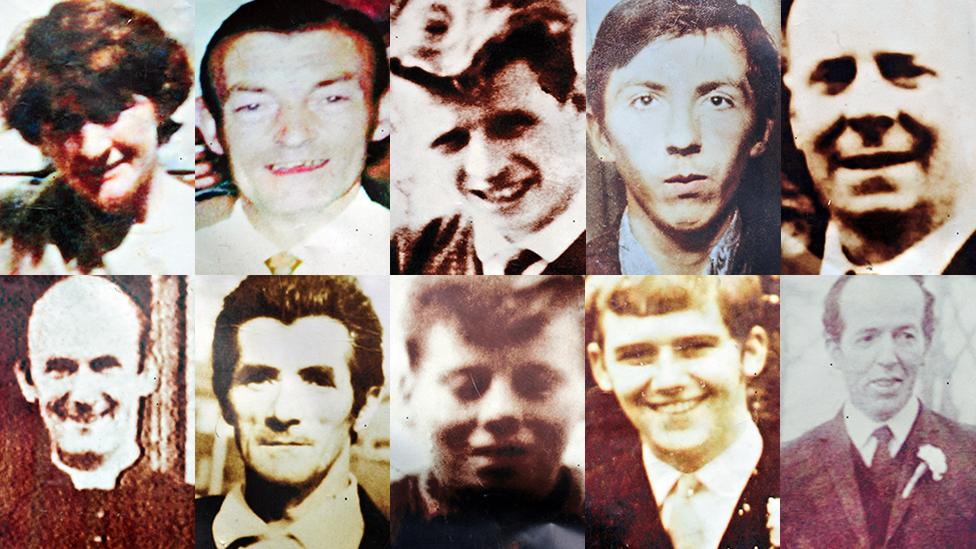Ballymurphy: Former soldier says discipline of Army prevented more deaths
- Published
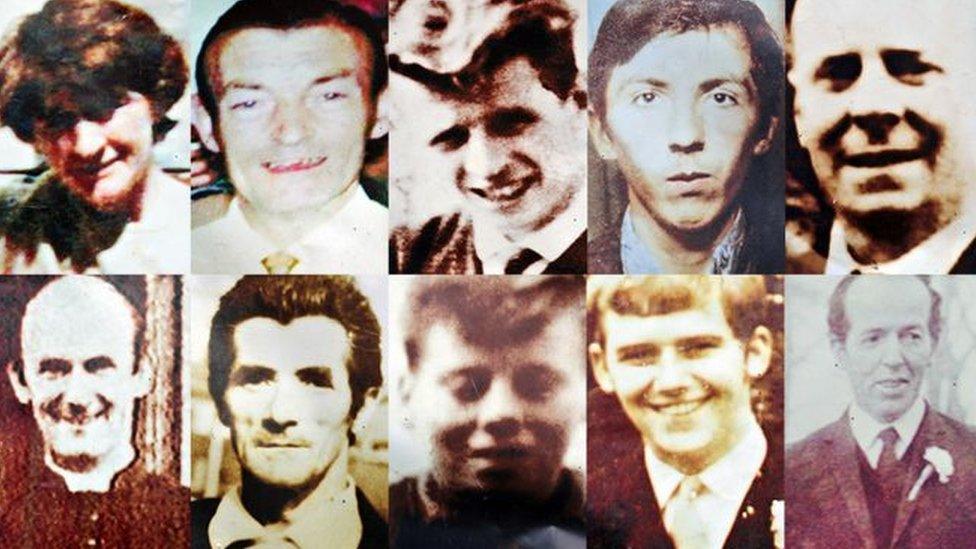
An inquest is examining the deaths of 10 people killed in shootings at Ballymurphy in August 1971
The discipline of the Army prevented a higher death toll at Ballymurphy, a former British soldier has said.
The Ballymurphy inquest is looking into the shooting dead of 10 people in west Belfast in 1971.
Henry Gow is a trained barrister, a former soldier, SAS member, and policeman.
He claimed that soldiers ran sweepstakes on who would shoot a gunman first.
He further said that he believed inquests like this one were "witch hunts".
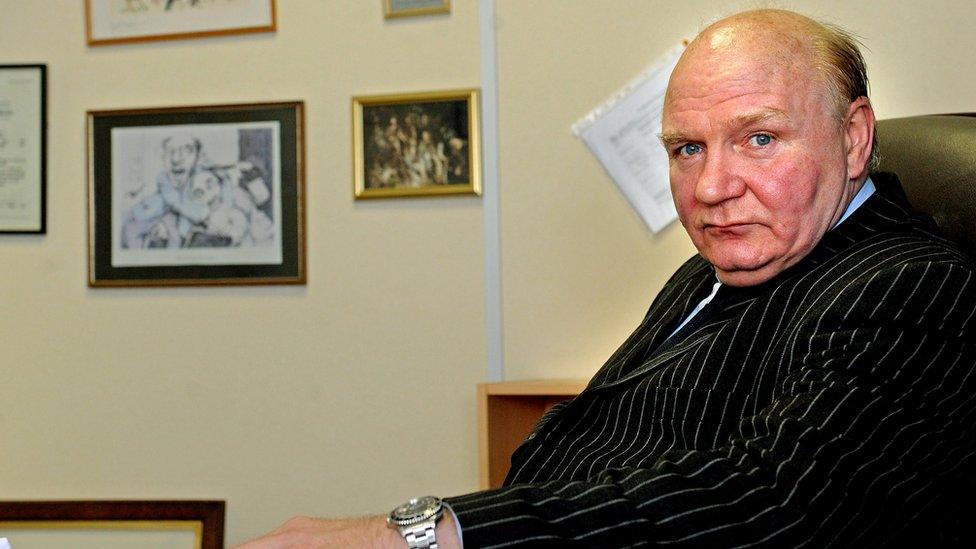
Mr Gow said that west Belfast "went insane" during riots
Mr Gow said he had only attended because he had been compelled to come by the coroner.
As Henry McCallion, he wrote a book called "Killing Zone" detailing his experiences, and which was referred to in court many times.
He says he has since lost his notes used in the writing of the book.
Mr Gow told the inquest: "The people of west Belfast should be thankful that it was the discipline of the British Army or the death toll could've been much higher."
In response, there was a shout of anger from the public gallery and one person left the room.
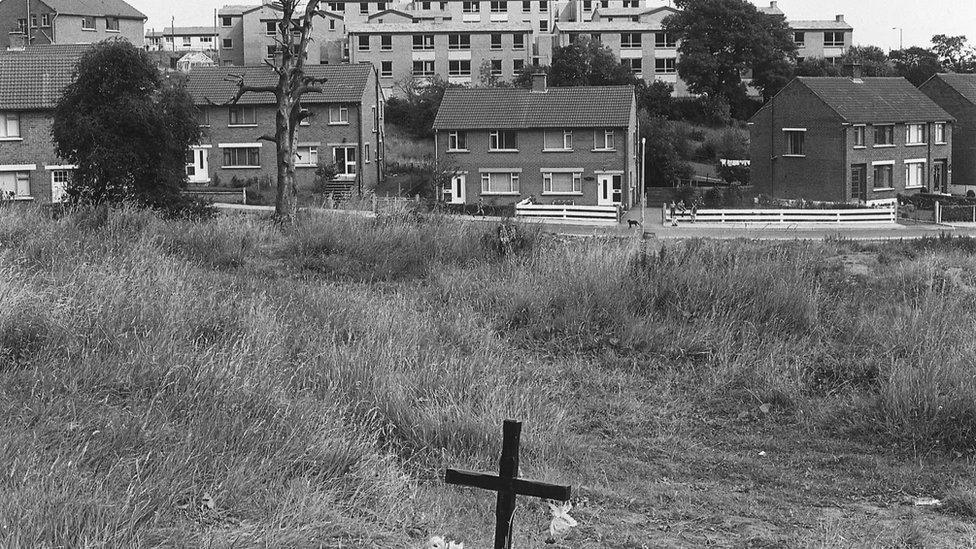
The 1971 shootings took place during the introduction of internment without trial
Ten people were fatally shot in the Ballymurphy area over a three day period following the introduction of internment.
All their families have insisted that none of them was armed or involved in any terrorist activity.
Giving evidence, Mr Gow said that west Belfast "went insane" during riots, and said at one point that "on the day of internment, everybody on the street was an enemy".
He said that in his unit, A company 2 para, soldiers ran a sweepstake on who would be the first to shoot a terrorist dead.
He said that one soldier had been disappointed to learn a man he shot had survived, and had even rung the hospital to check.
The inquest heard the soldier involved denies this ever happened.
Mr Gow also said that he and his soldier colleagues did not, however, consider all civilians to be an enemy who could be shot.
'On a high'
He added that he did not witness any of the killings, and was part of a group from A Company which arrived at the Henry Taggart base late on the night of 9 August 1971, to resupply B Company with ammunition.
He said the first thing that struck him when arriving was the gates which were scorched from petrol bombs and that other soldiers had pointed out bullet holes in the wall.
In his book, he described the soldiers as being "on a high" and "as soon as I walked in I knew why".
He said he could see six bodies lying in the hall and that one of the bodies belonged to a woman who had been shot up to three times.
When asked as to what he meant by a "high", Mr Gow said it was because the soldiers had survived an armed action.
'Shot the hell out of them'
At the base that night, he said, soldiers told Mr Gow they'd survived two attempts by armed civilians to overrun the camp and that "soldiers shot the hell out of them".
Mr Gow told the inquest that on the night of 9 August into the morning of 10 August, he believed he had a conversation with a soldier who shot the priest, Fr Hugh Mullan.
He said the soldier told him he shot and wounded a gunman on waste ground and that a second man ran over to him.
The soldier, who Mr Gow said was a member of Support Company, said the second man was looking for a rifle, and when he picked it up, he shot him.
Support Company had been operating in the Springfield Park area where Fr Mullan was shot and killed on 9 August.
Mr Gow said he could only refresh his memory of events in 1971 by re-reading his book.
He insisted many times in court that he was doing his best to give a truthful account of what he remembered from 1971.
He insisted he had tried to bury some memories of the time, and said he resented the fact that a barrister for some of the families had called him a liar, in open court.
During questioning Mr Gow was accused many times of not fully assisting the inquest, and was once directly called a liar by a barrister.
He made it clear that he had not wanted to appear at the inquest and only did so because he had received a court summons.
- Published8 May 2019
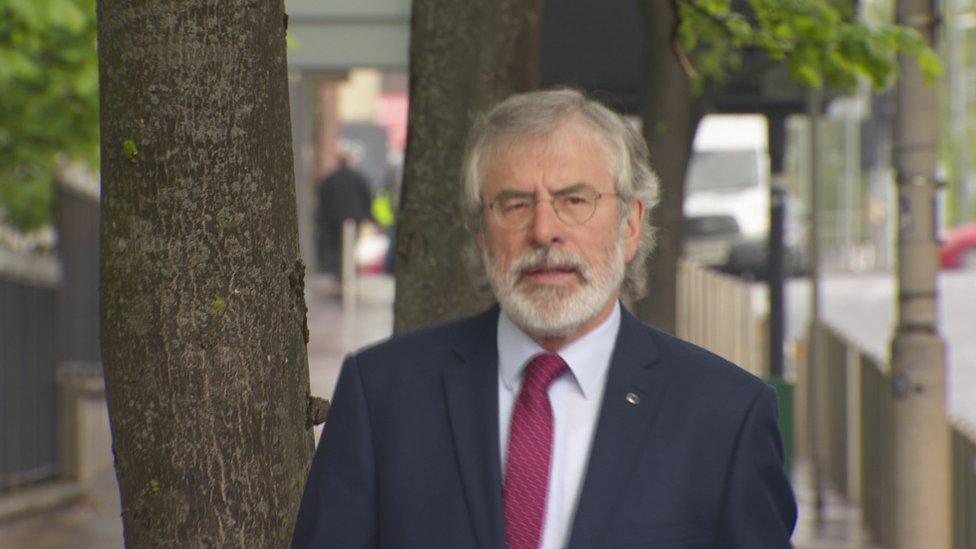
- Published7 May 2019

- Published11 May 2021
